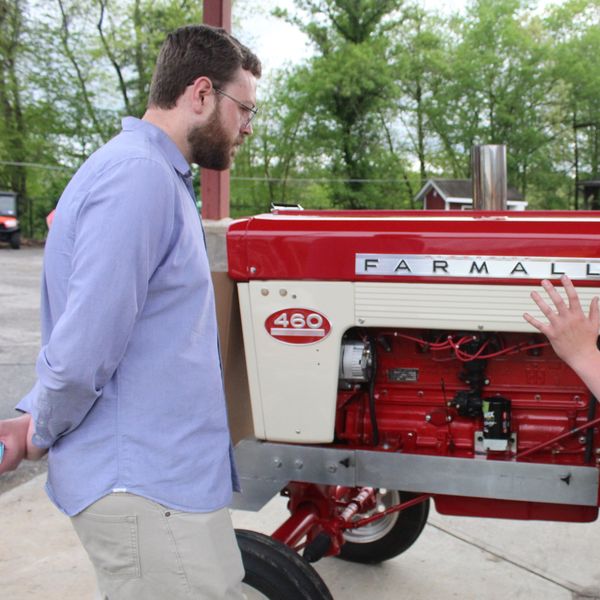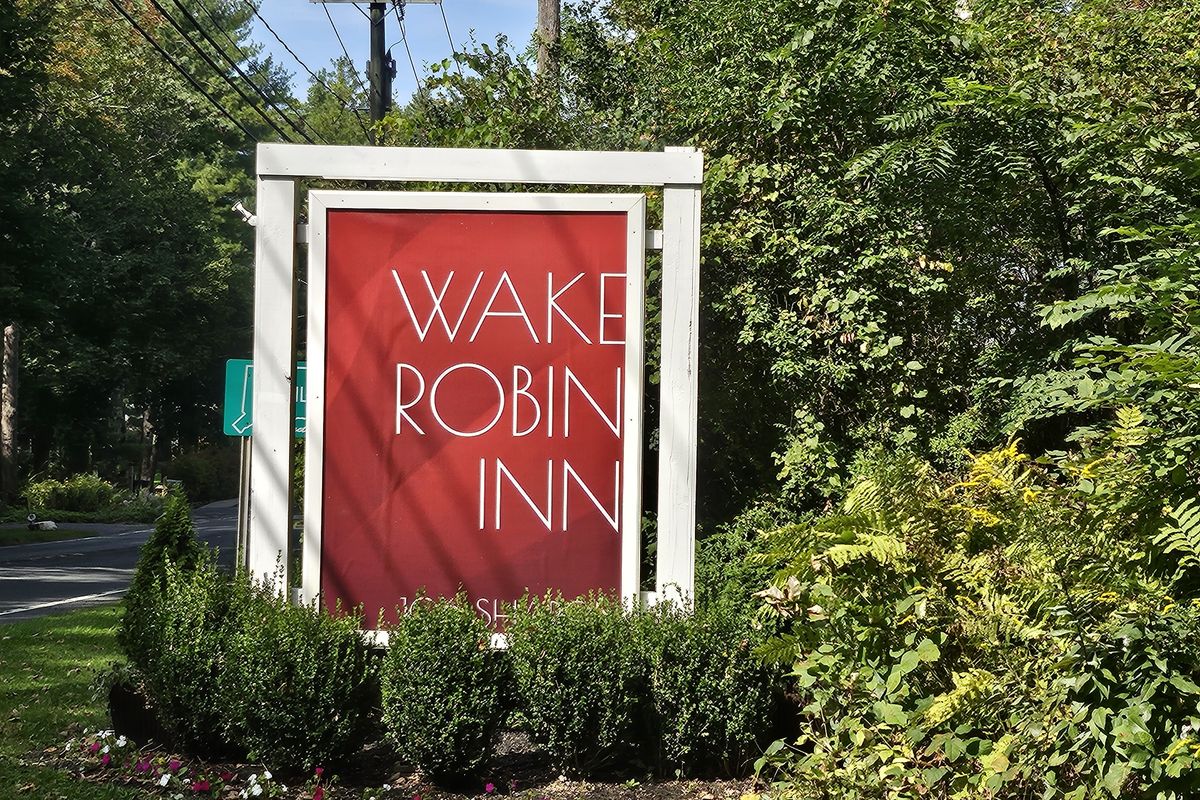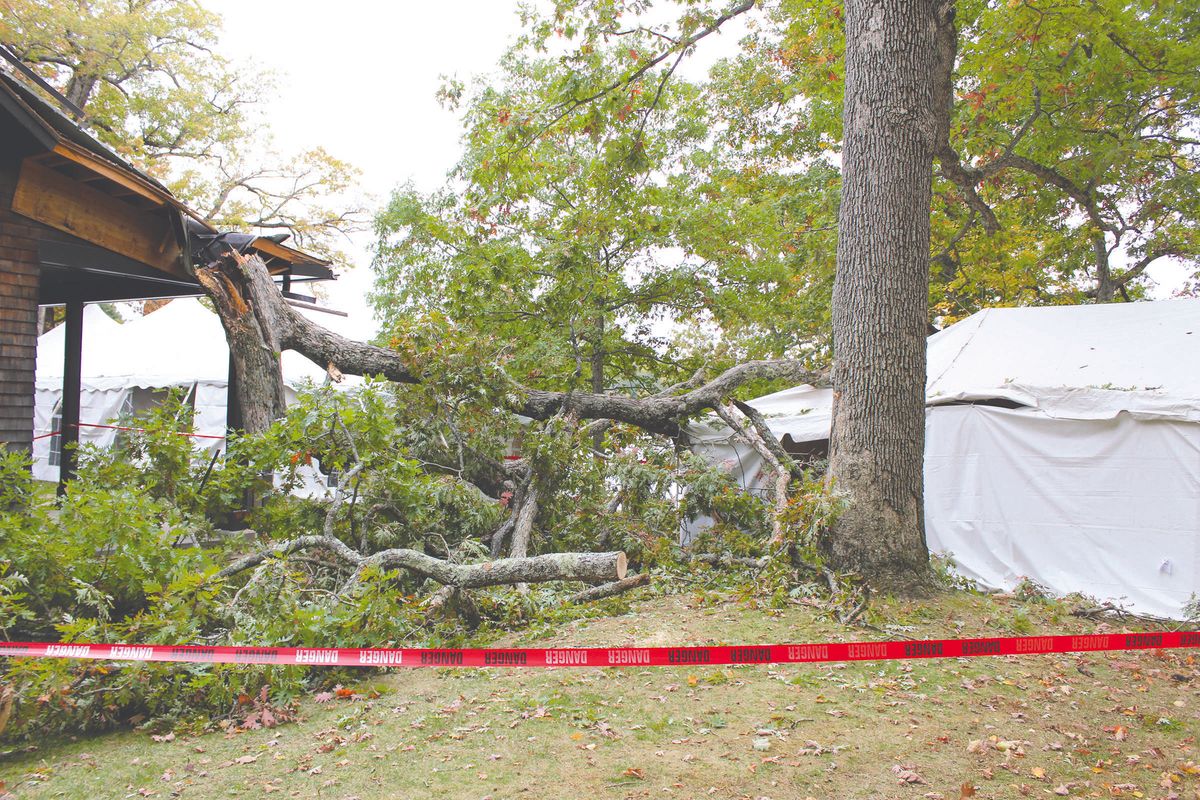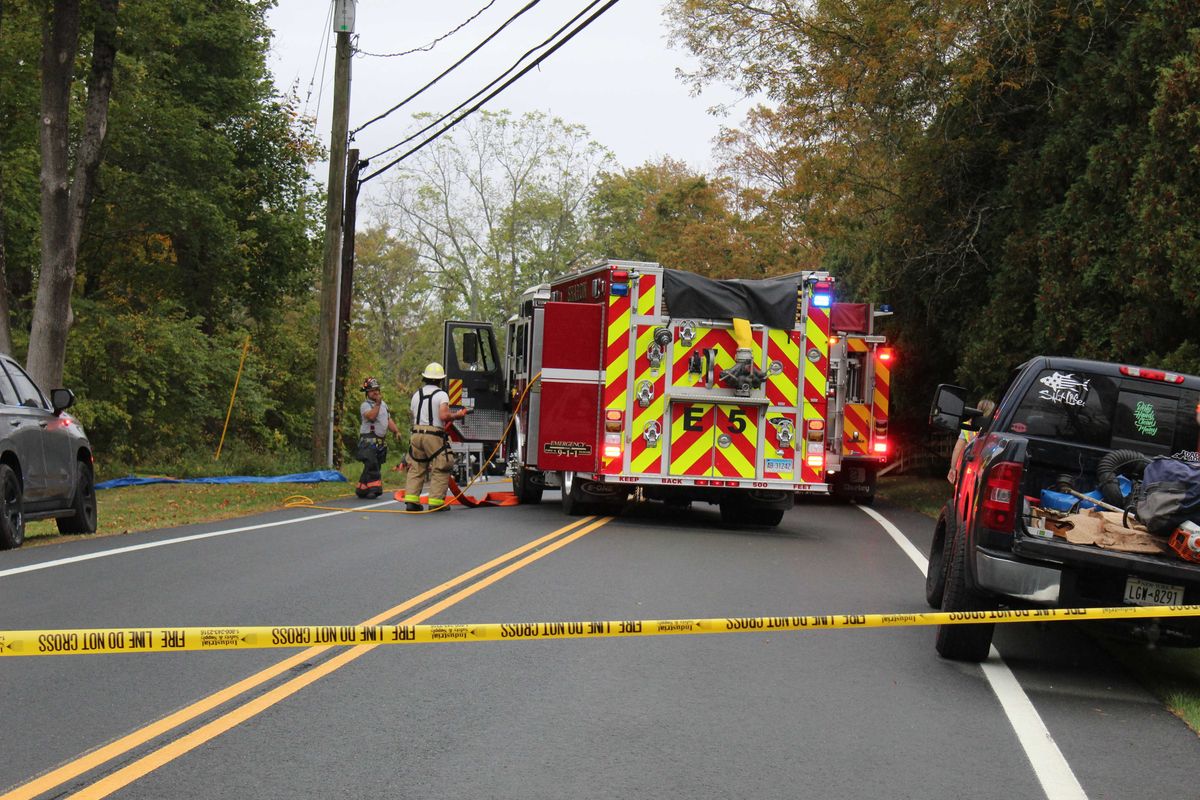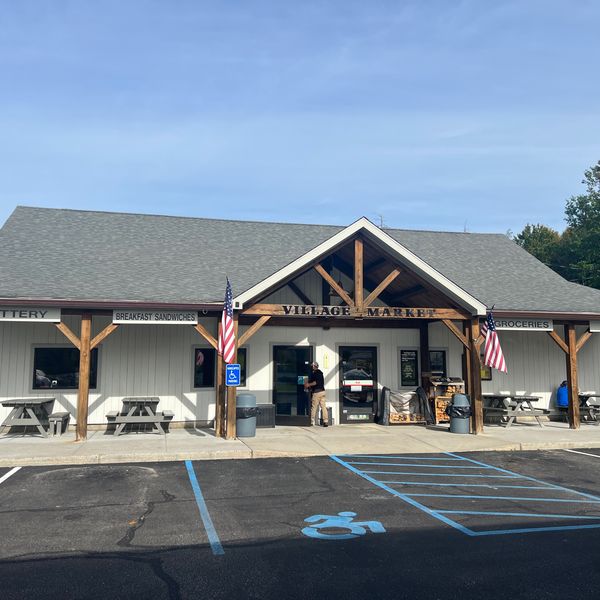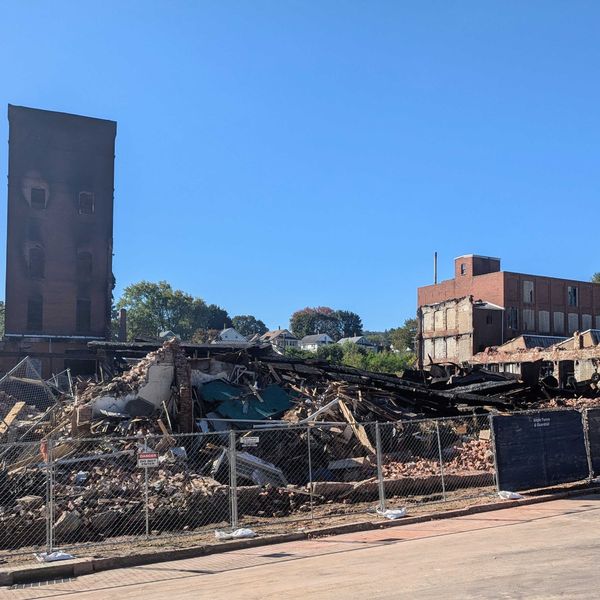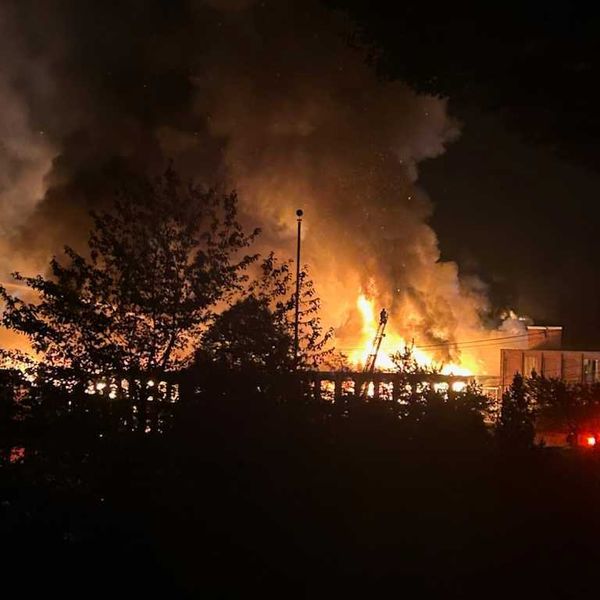Latest News
P&Z deliberates on Wake Robin expansion
Oct 14, 2025
Wake Robin Inn is located on Sharon Road in Lakeville.
Photo by John Coston
LAKEVILLE — Nearly a month after closing the public hearing on the proposed Wake Robin Inn redevelopment, the Planning and Zoning Commission began its deliberations last week over the course of two special meetings devoted solely to the controversial project.
Over four hours of discussion helped the Commission to establish its position at this stage in the process, about a month before its statutory window to render a decision expires on Nov. 13.
By the end of the Oct. 9 meeting, the commission’s five voting members were split in their inclination towards approval or denial, with Secretary Martin Whalen and Regular Member Bob Riva indicating a favorable view, Vice Chair Cathy Shyer and Chair Michael Klemens leaning towards denial, and Regular Member Allen Cockerline expressing reluctance to suggest a vote before further conversation.
“We have more questions that have not been answered,” Klemens said.
“I think we’d all agree to that,” replied Cockerline.
The fundamental nature of those questions is: is the project still too big? And how does the Commission quantify “too big?”
This marked the second time the Commission has sat down to weigh the merits of an expansion proposal for the Inn. The applicant, Aradev LLC, had withdrawn a previous application in December 2024 after four of the five voting members indicated they would likely deny it. Since Aradev resubmitted a revised application this spring in response to feedback from P&Z and Salisbury residents, many neighbors have remained vocal in their continued opposition to the project, both during the public hearing and through community organizing.
Last week several commissioners expressed their gratification with Aradev’s responsiveness to the feedback and the thoroughness of the revised application, though the overall size of the development remained controversial. Cockerline praised the new proposal’s stormwater management plan in particular, which he described as “beyond anything I could’ve imagined.”
He also said it would note a marked improvement to the Inn’s current condition which he characterized as “functionally obsolete.” It should have been renovated 20 years ago,” he said on several occasions over the two meetings.
Klemens said that the application is “much better designed this go around, but still large.”
Shyer took a harder stance, one that echoed the sentiments conveyed in many a neighbor’s testimony during the public hearing. “The bottom line is, this is a big development,” she said. “It’s as big as the last one.” While the new plans have downsized the room count and building footprint from 2024’s application among other alterations, many residents have claimed that the currently proposed expansion is, in terms of impact, nearly identical.
Klemens closed in on a sentence in the town’s zoning regulation 803.3 that addresses impact on neighboring properties in the case of a special permit application as fundamental to the Commission’s deliberation. The clause states that the development may not “cause undue concentration of population or structures,” which Klemens said that, while a tricky thing to define, is the crux of the matter: “I think that’s been the heart of the whole thing. It’s the size; it’s the increase.”
Shyer suggested traffic as a potentially quantifiable metric by which the Commission could determine if the redevelopment is proportionally inappropriate for the location. Before the next meeting, which is scheduled for Oct. 16 at 7 p.m., the Land Use Office will seek data on how ingress/egress by Inn guests and restaurant goers will affect, by percentage, the number of cars at busy Lakeville intersections.
P&Z’s attorney Charles Andres was asked to seek out case law where “undue concentration” has been used as a basis for special permit denial. He said that the language, having appeared in the first national zoning enabling laws in the 1920s, is antiquated and has been phased out of many regulation books. He agreed that examples of its use in the special permit context will be helpful in pinning down such a vague concept.
Keep ReadingShow less
Fallen tree cancels jubilee
Oct 13, 2025
The roof of the Grove was damaged by the tree, the event tent was punctured, a chef was injured and the Jubilee Luncheon was canceled Sunday, Oct. 12.
Photo by Patrick L. Sullivan
LAKEVILLE — The Lakeville Journal and The Millerton News Jubilee Luncheon fundraiser at the Grove Sunday, Oct. 12 was canceled after a very large section of a tree fell on the caterer’s tent at about 10 a.m.
Most of the catering staff heard the tree breaking up and got out of the tent in time, but the chef was hit by the falling limbs and sustained non-critical injuries.
A portion of the Grove’s roof sustained damage and branches came through the tent.
The Lakeville Hose Company responded to the scene. The chef was transported to Sharon Hospital by the Salisbury Volunteer Ambulance Service.
“While we’re deeply disappointed to cancel our annual fundraising event, our first concern is for our caterer’s chef, who was injured in the incident and is now recovering at home,” said James Clark, Publisher. “We’re grateful there were no more serious injuries, and we deeply appreciate the understanding and support of our honoree, underwriters, and guests.”
The incident occurred during preparation for the event, which would have centered around the presentation of the Estabrook Community Leadership Award to Bunny Williams.
Food that The Marketplace had prepared for the event was donated to People’s Pantry in Great Barrington.
Keep ReadingShow less
Emergency responders block Amenia Union Road in Sharon Saturday, Oct. 11, while responding to the vehicle crash.
Photo by Patrick L. Sullivan
Updated Oct. 13, 9:25 a.m.:
SHARON — Shea Cassidy-Teti, 17, of Salisbury, died Saturday, Oct. 11, in a tragic car crash on Amenia Union Road in Sharon.
Connecticut State Police reported Charles Teti, 62, was driving his Jeep Grand Cherokee northbound on Amenia Union Road when, for an unknown reason, the vehicle crossed the southbound lane and exited the roadway where it struck a tree and home. Airbags deployed.
Teti and front seat passenger Aidan Cassidy, 63, sustained serious injuries. Teti was airlifted to Hartford Hospital and Cassidy was transported by ambulance to Sharon Hospital for treatment.
Shea Cassidy-Teti was in the back seat and sustained fatal injuries. He was pronounced dead on scene.
Cassidy-Teti was a senior at Kent School. He played on the football and tennis teams.
The residence that was struck is located at 35 Amenia Union Road.
The case remains under open investigation. Witnesses are asked to contact Trooper Lukas Gryniuk at Troop B 860-626-1821.
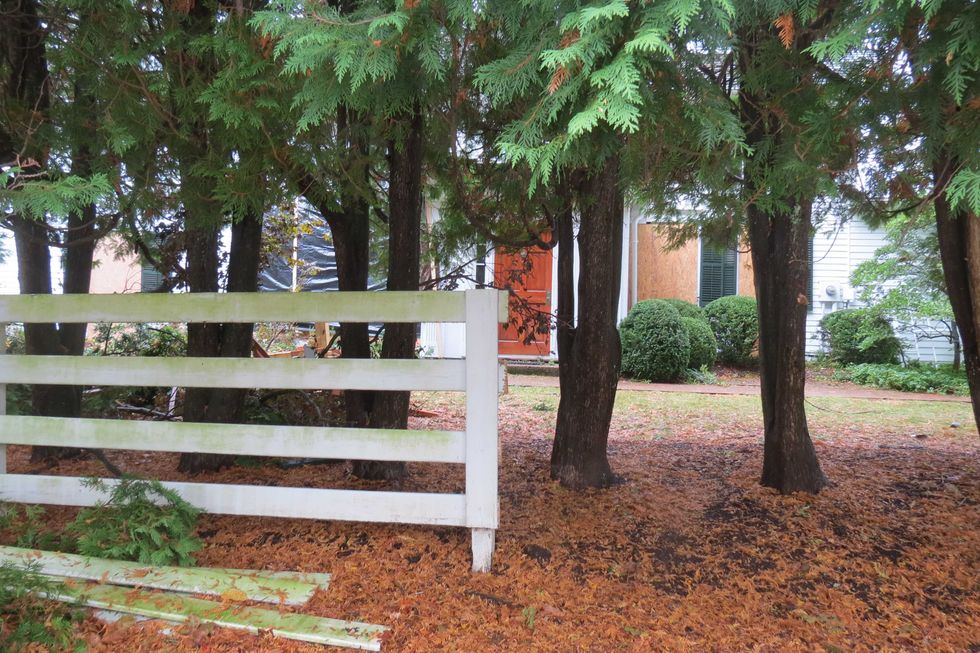
Keep ReadingShow less
Rhys V. Bowen
Oct 08, 2025
LAKEVILLE — Rhys V. Bowen, 65, of Foxboro, Massachusetts, died unexpectedly in his sleep on Sept. 15, 2025. Rhys was born in Sharon, Connecticut, on April 9, 1960 to Anne H. Bowen and the late John G. Bowen. His brother, David, died in 1979.
Rhys grew up at The Hotchkiss School in Lakeville, where his father taught English. Attending Hotchkiss, Rhys excelled in academics and played soccer, basketball, and baseball. During these years, he also learned the challenges and joys of running, and continued to run at least 50 miles a week, until the day he died.
In 1982 after graduating summa cum laude from Harvard College, Rhys returned to Hotchkiss to teach biology, where he met his wife of 35 years, Rebecca (Becky) Snow. After two years of teaching, he worked at a research field site in Borneo, then went on to the University of California, Davis where he earned a PhD in Animal Behavior in 1995.
Rather than follow an academic tenure track, Rhys preferred the solitary focus of field ornithology, and he spent several decades researching the ecology of bird species in California and on Cape Cod and the Islands. Rhys believed passionately in supporting biodiversity through habitat preservation. His proudest achievements, therefore, came through his work for the Lakes Region Conservation Trust, in New Hampshire, where he served on committees and the Board of Trustees for twenty years, including three years as Chair.
Deeply intellectual and curious, Rhys learned Homeric Greek so he could read The Odyssey and The Iliad in their original language. An amateur Melville scholar, he would wax poetic about reading Moby-Dick for the umpteenth time.Rhys’s spirit was filled by the performing arts. Concerts by the Handel and Haydn Society and Boston Early Music Festival often brought tears to his eyes, while Boston Bluegrass Union shows delivered toe-tapping fidgetiness.
Rhys will be missed by his wife, Becky Snow, his mother, Anne Bowen, extended family, friends, and anyone who had the pleasure of knowing him.
A service will be held at The Hotchkiss School chapel on Saturday, Nov. 15, 2025 at 1 p.m..
In honor of Rhys’s memory, donations can be made to the Lakes Region Conservation Trust.
Keep ReadingShow less
loading


